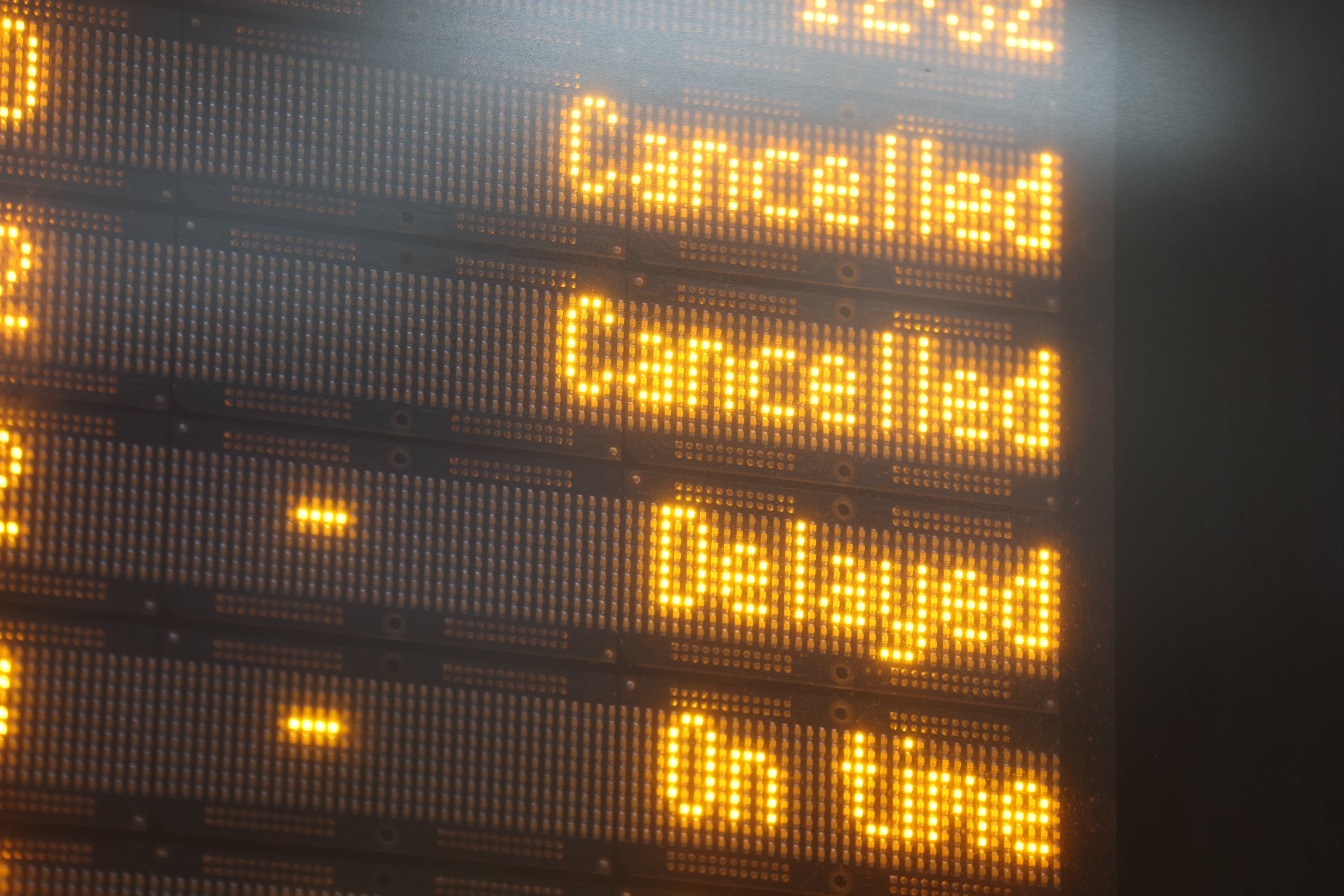Train cancellations hit worst level on record
Strike action in disputes over jobs, pay and conditions has caused a surge of cancellations in recent months.

Your support helps us to tell the story
From reproductive rights to climate change to Big Tech, The Independent is on the ground when the story is developing. Whether it's investigating the financials of Elon Musk's pro-Trump PAC or producing our latest documentary, 'The A Word', which shines a light on the American women fighting for reproductive rights, we know how important it is to parse out the facts from the messaging.
At such a critical moment in US history, we need reporters on the ground. Your donation allows us to keep sending journalists to speak to both sides of the story.
The Independent is trusted by Americans across the entire political spectrum. And unlike many other quality news outlets, we choose not to lock Americans out of our reporting and analysis with paywalls. We believe quality journalism should be available to everyone, paid for by those who can afford it.
Your support makes all the difference.Train reliability in Britain reached the worst level on record after another month of disruption.
The industry’s cancellations score during the 12 months to August 20 was 3.7%, analysis of Office of Rail and Road data by the PA news agency found.
That was the poorest reliability in records dating back to 2015.
Strikes in disputes over jobs, pay and conditions have caused a surge of cancellations in recent months.
Cancellations scores reflect the percentage of services that are either fully or part-cancelled.
Each part-cancellation is counted as half a full cancellation.
The score for all services in the latest available four-week period of data from July 24 to August 20 was 4.9%.
The worst individual operator between those dates was Avanti West Coast, with its highest ever score of 14.9%.
Other operators which also had their poorest reliability for a four-week period include London North Eastern Railway (11.0%), East Midlands Railway (5.5%) and Grand Central (12.0%).
Govia Thameslink Railway – which consists of Southern, Thameslink, Great Northern and Gatwick Express services – recorded its second worst cancellations score of 11.1%.
A spokesman for industry body the Rail Delivery Group said: “We know that reliability and punctuality are the most important areas for improvement for our passengers and apologise to all those who have experienced disruption to their travel plans.
“We need to end the unnecessary and damaging strikes called by the leaders of the transport unions which disrupt passengers’ plans, undermine struggling businesses and upend the industry’s recovery.
“They are opposing the very reforms that will improve reliability and punctuality and therefore help build a sustainable railway.”
Drivers’ union Alsef confirmed on Tuesday that its members at 12 companies will stage fresh strikes on October 1 and 5, affecting travel for delegates and visitors to the Conservative party conference in Birmingham.
There have been calls for the operation of Avanti West Coast’s services to be taken into public ownership after the company slashed its timetable to reduce short-notice cancellations.
A spokesman for the operator said: “We know we’re not delivering the service our customers rightly expect and we apologise for the enormous frustration and inconvenience.
“We remain committed to delivering the best possible service for our customers and the communities we serve.
“A shortage of staff, particularly drivers, who were willing to volunteer for overtime led to a marked increase in the number of short-notice cancellations, which we know are highly disruptive for customers.
“As a result, we reduced our timetable to ensure a more reliable service. This was not a decision we took lightly and we are now in the process of rebuilding the timetable in a sustainable and robust way without the reliance on overtime.”
Meanwhile, trains to and from London were disrupted for a third consecutive day on Wednesday due to damaged overhead electric wires.
Services at King’s Cross, Paddington and Moorgate were delayed because of problems at Stevenage and Hayes & Harlington.